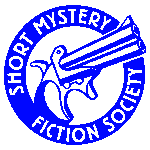Writers are fascinated by names.
There’s a whole science to the study of the origin and
history of names. It’s called onomatology. As writers, we’re more interested in
finding the right name than in delving into its origin.
As we create our characters—unless they whisper in our ears
and tell us what they want to be called—we often struggle to find an
appropriate name. I’m sure I’m not the only one who has changed a character’s
name in midstream because the first simply did not click.
I’ve often wondered why Fran Striker, creator of the Lone
Ranger, chose the name Tonto for the masked man’s companion, since the term
means foolish in Spanish, Portuguese and Italian, surely an affront to the
Native American community. Some sources indicate the name was proposed by James
Jewell who contended it meant “wild one” in an unspecified indigenous language.
Jewell also came up with Tonto’s trademark term, “kemosabe,” which he based on
the name of an Upper Michigan summer camp. At
least they did select Jay Silverheels, a genuine American Indian (Mohawk), for
the radio and film roles.
Writers use a variety of means to select names. Some rely on
the phonebook—just open to a page at random and take your pick. Others hold
contests, offering readers the opportunity to have a character named for them.
Not sure why anyone would want their name attached to a murderer—even a
fictional one. I guess the quest for fame (or notoriety) takes us down some
strange roads.
One thing we must strive to avoid is having characters with
too similar names. This has a tendency to confuse readers. One way I’ve found
useful to prevent this is to keep an alphabetical list of characters.
Names are important in my other life as a genealogist, too.
I’ve found my work in that field a good resource for harvesting names. I keep a
list of those which appeal for future use, forenames, surnames and even
nicknames.
Frankly, I can’t think of a better source for a variety of
common and unusual names.

